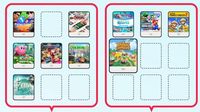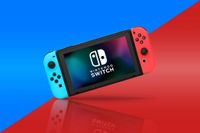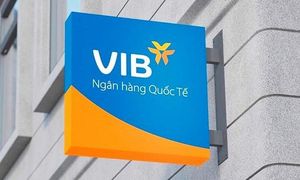Nintendo is set to revolutionize the way players share digital games on its Switch console with the introduction of a new "virtual game card" system, announced on March 27, 2025, and expected to roll out in late April. This innovative feature mirrors the simplicity of sharing physical game cards, allowing players to "load" and "eject" digital games across devices seamlessly.
The virtual game card system is designed to enhance user experience by enabling players to manage their digital libraries more effectively. With this system, players can easily transfer games between consoles, making it easier for families to share titles without needing multiple copies. As Nintendo explained, once a digital game is ejected from one console, it cannot be played on that device but can be loaded onto another Switch, where any user logged into that system can access it without restrictions.
To initiate this process, an internet connection is required for the initial loading and ejecting of the games. However, once the game has been transferred to the new console, it can be played offline. Interestingly, the first time this sharing occurs, both consoles must be synced via a local connection, but subsequent transfers will not require the consoles to be in close proximity.
According to Nintendo, the virtual game card system allows players to "freely load and arrange which games you play on up to two systems." This means that while players can share games between two consoles, they won't be able to share different games across multiple secondary consoles. For households with more than two Switch units, Nintendo has introduced a family group feature that allows virtual game card lending among members of the same Nintendo Account family group. However, this family loaning is limited to one game at a time per group member and lasts for just two weeks, after which the loan can be renewed manually.
This new feature not only makes sharing easier but also aims to prevent potential misuse. Games shared through this system can only be played on devices connected to the same Nintendo Account family group, ensuring that the games remain linked to their original owners. This limitation is reminiscent of past controversies in the gaming industry, particularly a failed attempt by Microsoft in 2013 to restrict game sharing on the Xbox One, which backfired spectacularly.
Nintendo's announcement comes at a time when digital gaming is on the rise, with many players preferring to purchase and download games rather than buy physical copies. The introduction of the virtual game card system reflects a shift in how gaming companies are adapting to the growing demand for digital content while still attempting to maintain control over the distribution of their products.
Moreover, the virtual game card feature is not just a short-term update; it is designed to work across future consoles as well. Nintendo has confirmed that this system will be compatible with the upcoming Nintendo Switch 2, promising a consistent sharing experience across console generations. This compatibility is particularly significant as it signals Nintendo's commitment to evolving its digital infrastructure alongside hardware advancements.
The virtual game card system is expected to include a variety of upcoming titles, such as the highly anticipated Metroid Prime 4: Beyond, Pokémon Legends: Z-A, and Rhythm Heaven Groove. Additionally, new releases like SaGa Frontier 2 Remastered, Rift of the NecroDancer, and Disney Villains Cursed Café will also be part of this system.
With this new initiative, Nintendo aims to create a more inclusive gaming environment for families, allowing them to enjoy a wider array of games without the financial burden of purchasing multiple copies. This approach not only caters to the needs of families but also encourages players to explore different titles they might not have tried otherwise.
In conclusion, the introduction of the virtual game card system marks a significant step forward for Nintendo, aligning with modern gaming trends while addressing the needs of its user base. As the rollout approaches, many players are eager to see how this feature will change their gaming experience and whether it will set a new standard for digital game sharing in the industry.





